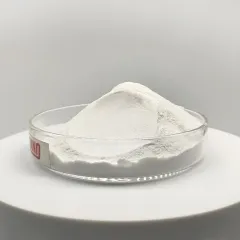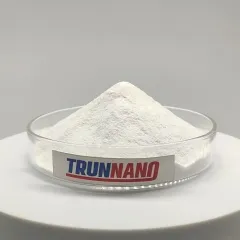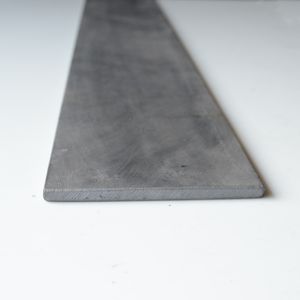
Introduction to Sodium Silicate: A Time-Tested Material with Expanding Industrial Relevance
Sodium silicate, commonly called water glass or soluble glass, is an inorganic substance composed of salt oxide (Na two O) and silicon dioxide (SiO โ) in differing proportions. With a background dating back over 2 centuries, it stays among one of the most commonly made use of silicate substances as a result of its one-of-a-kind combination of sticky residential or commercial properties, thermal resistance, chemical stability, and ecological compatibility. As sectors seek more lasting and multifunctional products, salt silicate is experiencing renewed passion across building and construction, detergents, foundry job, dirt stablizing, and also carbon capture technologies.
(Sodium Silicate Powder)
Chemical Structure and Physical Characteristic
Salt silicates are readily available in both solid and liquid kinds, with the basic formula Na two O ยท nSiO โ, where “n” denotes the molar proportion of SiO two to Na โ O, frequently described as the “modulus.” This modulus dramatically affects the substance’s solubility, viscosity, and sensitivity. Greater modulus worths represent enhanced silica content, resulting in greater firmness and chemical resistance but lower solubility. Salt silicate solutions exhibit gel-forming actions under acidic problems, making them optimal for applications needing controlled setting or binding. Its non-flammable nature, high pH, and capability to form thick, protective films even more enhance its utility popular environments.
Function in Building and Cementitious Materials
In the building and construction market, sodium silicate is thoroughly utilized as a concrete hardener, dustproofer, and securing representative. When put on concrete surfaces, it responds with free calcium hydroxide to form calcium silicate hydrate (CSH), which compresses the surface, boosts abrasion resistance, and minimizes leaks in the structure. It also works as a reliable binder in geopolymer concrete, an appealing alternative to Rose city cement that significantly decreases carbon exhausts. In addition, salt silicate-based cements are utilized in underground design for soil stabilization and groundwater control, providing economical solutions for facilities strength.
Applications in Foundry and Steel Casting
The foundry sector counts heavily on sodium silicate as a binder for sand molds and cores. Contrasted to traditional natural binders, sodium silicate provides premium dimensional precision, reduced gas evolution, and simplicity of reclaiming sand after casting. CO two gassing or natural ester treating methods are generally utilized to set the sodium silicate-bound mold and mildews, offering fast and reliable production cycles. Current advancements focus on improving the collapsibility and reusability of these molds, reducing waste, and enhancing sustainability in metal spreading operations.
Use in Detergents and House Products
Historically, salt silicate was a key component in powdered washing cleaning agents, working as a home builder to soften water by withdrawing calcium and magnesium ions. Although its usage has actually declined somewhat due to environmental problems related to eutrophication, it still plays a role in commercial and institutional cleaning formulations. In environmentally friendly cleaning agent growth, scientists are checking out changed silicates that stabilize efficiency with biodegradability, aligning with global patterns toward greener customer items.
Environmental and Agricultural Applications
Beyond industrial uses, salt silicate is acquiring grip in environmental management and agriculture. In wastewater therapy, it assists get rid of heavy metals through precipitation and coagulation processes. In farming, it functions as a soil conditioner and plant nutrient, particularly for rice and sugarcane, where silica strengthens cell wall surfaces and boosts resistance to pests and illness. It is additionally being evaluated for use in carbon mineralization jobs, where it can respond with carbon monoxide two to create secure carbonate minerals, contributing to long-lasting carbon sequestration strategies.
Advancements and Emerging Technologies
(Sodium Silicate Powder)
Recent breakthroughs in nanotechnology and materials scientific research have opened new frontiers for sodium silicate. Functionalized silicate nanoparticles are being established for medication delivery, catalysis, and wise finishes with receptive behavior. Crossbreed composites incorporating salt silicate with polymers or bio-based matrices are revealing pledge in fireproof materials and self-healing concrete. Scientists are also investigating its possibility in sophisticated battery electrolytes and as a precursor for silica-based aerogels made use of in insulation and filtering systems. These technologies highlight salt silicate’s flexibility to modern-day technological needs.
Challenges and Future Instructions
In spite of its convenience, sodium silicate encounters challenges including level of sensitivity to pH modifications, limited life span in solution kind, and problems in attaining regular performance across variable substratums. Efforts are underway to create stabilized solutions, improve compatibility with various other additives, and decrease taking care of intricacies. From a sustainability viewpoint, there is growing emphasis on reusing silicate-rich commercial results such as fly ash and slag right into value-added products, advertising round economic climate concepts. Looking in advance, sodium silicate is positioned to continue to be a fundamental product– connecting typical applications with sophisticated modern technologies in power, atmosphere, and progressed manufacturing.
Provider
TRUNNANO is a supplier of boron nitride with over 12 years of experience in nano-building energy conservation and nanotechnology development. It accepts payment via Credit Card, T/T, West Union and Paypal. Trunnano will ship the goods to customers overseas through FedEx, DHL, by air, or by sea. If you want to know more about Sodium Silicate, please feel free to contact us and send an inquiry(sales5@nanotrun.com).
Tags: Sodium Silicate Powder,Sodium Silicate Powder
All articles and pictures are from the Internet. If there are any copyright issues, please contact us in time to delete.
Inquiry us



